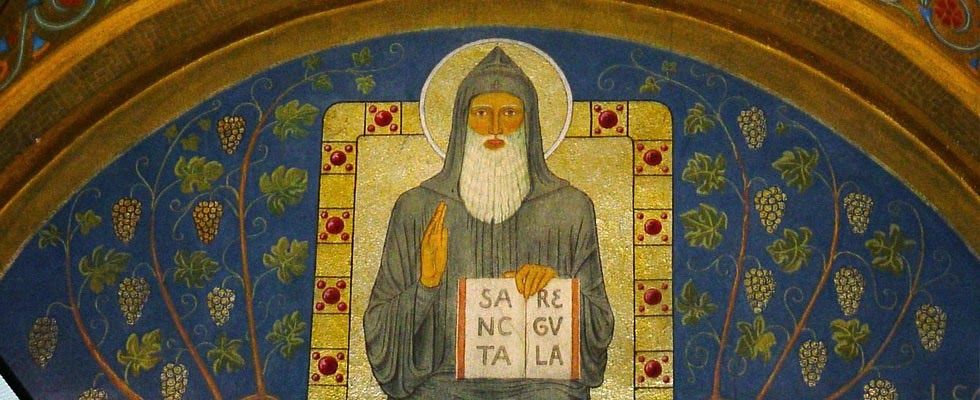The charge of weakly souls (XXVII)

CHAPTER XXVII. How careful the Abbot should be of the Excommunicate
4 Mar. 4 July. 3 Nov.
Let the Abbot shew all care and solicitude towards the offending brethren, for “they that are whole need not a physician, but they that are sick” (Matthew 9:12). To which end he ought, as a wise physician, to use every means in his power, sending some (senpectae) brethren of mature years and wisdom, who may, as it were secretly, console the wavering brother, and induce him to make humble satisfaction. Let them comfort him, that he be not overwhelmed by excess of sorrow (2 Corinthians 2:7); but as the Apostle saith, “Let charity be strengthened towards him”(2 Corinthians 2:7) and let all pray for him. For the Abbot is bound to use the greatest care, and to strive with all possible prudence and zeal, not to lose any one of the sheep committed to him. He must know that he hath undertaken the charge of weakly souls, and not a tyranny over the strong; and let him fear the threat of the prophet, through whom God saith: “What ye saw to be fat that ye took to yourselves, and what was diseased ye cast away” (Ezechiel 34:3–4). Let him imitate the loving example of the Good Shepherd, who, leaving the ninety and nine sheep on the mountains, went to seek one which had gone astray, on whose weakness He had such compassion that He vouchsafed to lay it on His own sacred shoulders and so bring it back to the flock (Luke 15:4–5).
Abbot Hunter–Blair translates the delinquentes fratres of the text by offending brethren. Abbot McCann gives “erring brethren.” A literal translation would be “delinquent brethren.” The sense of the phrase refers to brethren who fall short or fail in the observances and in the practice of virtue. These are the very brethren in the care of whom Saint Benedict would have the abbot exercise all solicitude. Brethren who are troubled and troubling require more attention and care than those who go about daily life without causing upsets and generating conflicts. Saint Benedict upholds this injunction by quoting the very words of Our Lord in the Gospel; it is the account of the call of Matthew:
As he passed further on his way, Jesus saw a man called Matthew sitting at work in the customs-house, and said to him, Follow me; and Matthew rose from his place and followed him. And afterwards, when he was taking a meal in the house, many publicans and sinners were to be found at table with him and his disciples. The Pharisees saw this, and asked his disciples, How comes it that your master eats with publicans and sinners? Jesus heard it, and said, It is not those who are in health that have need of the physician, it is those who are sick. Go home and find out what the words mean, It is mercy that wins favour with me, not sacrifice. I have come to call sinners, not the just. (Matthew 9:9–13)
Saint Benedict would have the abbot act as a wise physician. The wise physician not only knows his patients; he also know the medicines and remedies at his disposal. The physician’s skill lies in matching the right patient with the right medicine. The wrong medicine, or even the right medicine in the wrong dose, can be harmful or even deadly. Sometimes the abbot is obliged to administer the strong medicine of a stern rebuke. No abbot does this with gaiety of heart. It is, nonetheless, the right medicine for certain maladies of the soul. In order to be effective, it must be received humbly.
Saint Benedict knows well that some brethren will take observations, rebukes, and chastisements very badly. One brother’s reaction may be denial and indignation. Another brother’s reaction may be anger. Still another brother’s reaction may be a sullen silence and a slow descent into the sorrow of despondency. On the one hand, the abbot must not be prevented from correcting and chastising brethren from fear of what their reaction may be. On the other hand, the abbot must take measures, after administering correction and chastisement, to keep the brother concerned from falling into depression over it. Here Saint Benedict uses an unusual word: he speaks of the senpectae, that is of wise senior brethren who have the gift of counseling and consoling others. Punishment should never cause further damage to a brother; it must be medicinal. Although the abbot is the resident “wise physician” of the monastery, he works with a team of spiritual care-givers, directing and coordinating all their efforts. In this regard, the scrutinies of the novices can be very helpful, rather like the meetings of a medical team after doing their rounds. Under the headship of the chief resident physician, the various members of the team contribute their assessments and observations of the patients in order to have a plan of care adapted to each one.
The delinquent brother must never be made to feel that he is not loved. On the contrary, Saint Benedict says, Confirmetur in eo caritas, “Let charity be strengthened towards him” (2 Corinthians 2:7). And Saint Benedict adds, et oretur pro eo ab omnibus, “and let everyone pray for him.” Charity and intercessory prayer can conquer the most resistant opposition. Charity and intercessory prayer can heal the deadliest sicknesses of the soul. Charity and intercessory prayer can obtain spiritual resurrection for the brother languishing in the shadow of death, and the restoration of the sin-sick brother to full health of body, soul, and spirit. I affirm this without reservation because both charity and intercessory prayer tap into divine power, the power of the love of God revealed in Christ and poured into the members of His Mystical Body by the Holy Ghost.

Thank you, Father.